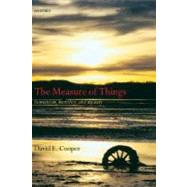
Note: Supplemental materials are not guaranteed with Rental or Used book purchases.
Purchase Benefits
What is included with this book?
| Introduction | p. 1 |
| A Human World? | p. 1 |
| 'Humility' and 'Vital' Matters | p. 10 |
| Preview | p. 17 |
| 'Self-Assertion': From 'Ockhamism' to Renaissance Humanism | p. 21 |
| History and Humanism | p. 21 |
| 'Ockhamism' | p. 24 |
| 'Self-Assertion' | p. 32 |
| Renaissance Humanism | p. 40 |
| Reason and Agency: Enlightenment, Kant, and Romanticism | p. 51 |
| 'Self-Assertion' in Abeyance | p. 51 |
| Enlightenment | p. 58 |
| Humanism Revived? | p. 64 |
| Agency Restored | p. 71 |
| Prometheanism: Marx, Nietzsche, Pragmatism, and 'Reactionary Modernism' | p. 78 |
| Production and Power | p. 78 |
| Life, Power, and Meaning | p. 88 |
| Existential Humanism | p. 99 |
| Prometheanism, Naturalism, and Humanism | p. 99 |
| The Language Analogy | p. 106 |
| Meaning and Practice | p. 111 |
| A 'Realist' Alternative? | p. 119 |
| Concepts, World, and Life | p. 128 |
| Interlude: Rival Humanisms | p. 113 |
| Humility | p. 144 |
| Authenticity and 'Dis-incumbence' | p. 144 |
| Hubris: Charge and Countercharge | p. 153 |
| Two Modes of Humility | p. 161 |
| Diagnosing the Charges | p. 168 |
| The Hubris of Absolutism | p. 173 |
| Ascent and Descent | p. 173 |
| 'The Myth of the Given' | p. 177 |
| Science and Society | p. 186 |
| Scientific Realism and Humility | p. 193 |
| 'Atypical' Absolutism | p. 202 |
| The Hubris of Humanism (1) | p. 210 |
| Truth and Objectivity | p. 210 |
| 'Dis-incumbence': Some Rival Approaches | p. 220 |
| Philosophical Moods | p. 231 |
| The Hubris of Humanism (2) | p. 238 |
| Dis-incumbence and 'Compensation': Three Experiences | p. 238 |
| Answerability | p. 252 |
| Measure and Purpose | p. 260 |
| Beyond the Human | p. 266 |
| Mystery | p. 277 |
| Impasse? | p. 277 |
| Impugning Mystery | p. 281 |
| Ineffability and Mystery | p. 286 |
| Emptiness | p. 296 |
| 'The World is Empty' | p. 296 |
| Problems of Interpretation | p. 303 |
| Metaphors of Emptiness | p. 308 |
| Doctrines of Mystery: Desiderata and a Failed Attempt | p. 315 |
| Transparency, Grace, and Epiphany | p. 321 |
| Mystery, Measure, and Humility | p. 332 |
| The Issue of Measure | p. 332 |
| Disconsonant Conceptions (1): Confrontation and Degradation | p. 337 |
| Disconsonant Conceptions (2): Occlusion | p. 339 |
| Consonance and Comportment | p. 352 |
| Humilities | p. 360 |
| Index | p. 365 |
| Table of Contents provided by Ingram. All Rights Reserved. |
The New copy of this book will include any supplemental materials advertised. Please check the title of the book to determine if it should include any access cards, study guides, lab manuals, CDs, etc.
The Used, Rental and eBook copies of this book are not guaranteed to include any supplemental materials. Typically, only the book itself is included. This is true even if the title states it includes any access cards, study guides, lab manuals, CDs, etc.